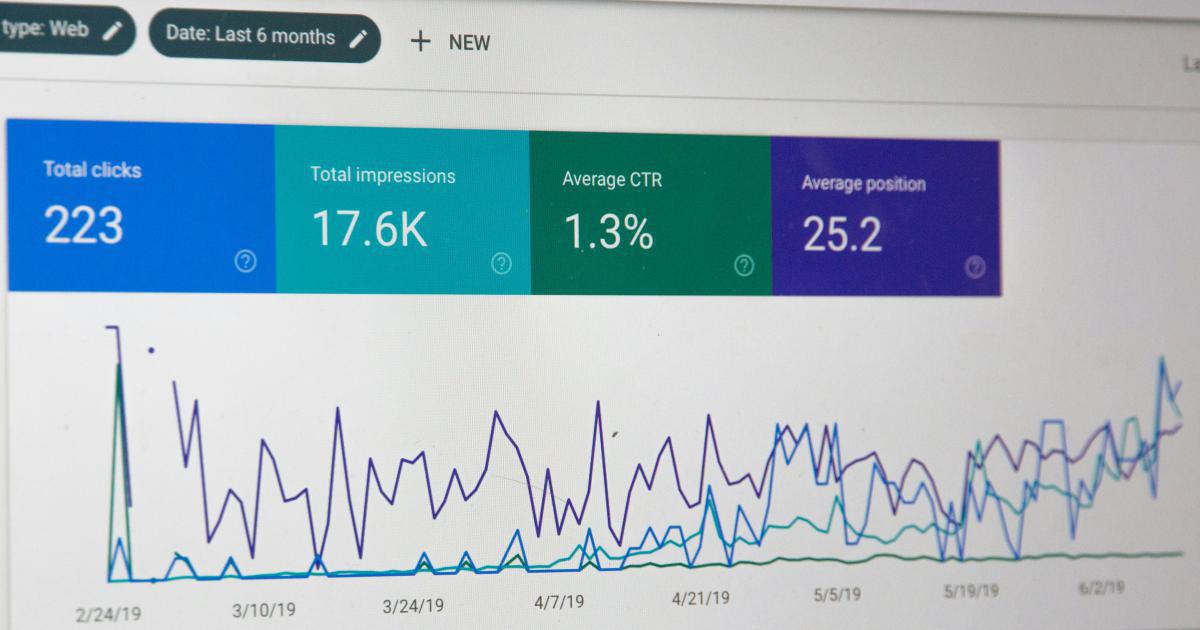Is your internet marketing campaign achieving desired results?


Introduction
In the ever-evolving world of digital marketing, businesses are constantly striving to reach their target audience and achieve their desired results. Whether it's increasing website traffic, generating more leads, or boosting sales, the success of an internet marketing campaign can make all the difference in a company's growth and profitability.
But how can you tell if your internet marketing efforts are truly paying off? In this comprehensive Q&A article, we'll dive into the key factors that determine the effectiveness of your online marketing strategy and provide practical insights to help you assess and optimize your campaign for maximum impact.
Q&A Sections
How do I know if my internet marketing campaign is achieving desired results?
The key to determining the success of your internet marketing campaign is to establish clear, measurable goals and track the relevant metrics that align with those objectives.
Answer
When it comes to evaluating the effectiveness of your internet marketing efforts, it's essential to start with defining your desired outcomes. This could include:
- Increasing website traffic
- Growing your email subscriber list
- Boosting lead generation
- Improving conversion rates
- Enhancing brand awareness
- Driving more sales or revenue
Once you've identified your specific goals, you can then track the corresponding metrics to gauge the performance of your campaign. Some commonly used metrics include:
- Website traffic (total visitors, page views, unique visitors)
- Bounce rate and average time on site
- Lead generation (form submissions, email signups)
- Conversion rates (e-commerce sales, lead-to-customer conversion)
- Social media engagement (followers, shares, comments)
- Return on investment (ROI) for your marketing spend
By regularly monitoring these key performance indicators (KPIs), you can determine whether your internet marketing campaign is achieving the desired results and make informed decisions about where to focus your efforts.
Key Takeaway: Clearly define your goals and track the relevant metrics to assess the success of your internet marketing campaign.

What are the common challenges that can prevent an internet marketing campaign from achieving desired results?
A variety of factors can hinder the success of an internet marketing campaign, from lack of strategy to poor targeting and measurement.
Answer
Some of the common challenges that can prevent an internet marketing campaign from achieving desired results include:
Lack of Clear Objectives: Without well-defined goals, it's impossible to measure the success of your campaign and make informed decisions about resource allocation and optimization.
Inadequate Target Audience Research: Failing to thoroughly understand your target audience's needs, preferences, and behaviors can result in misaligned messaging and ineffective marketing efforts.
Inconsistent or Disjointed Branding: Inconsistent branding across various digital channels can confuse and alienate potential customers, undermining your marketing efforts.
Ineffective Content Strategy: If your content fails to engage, educate, or inspire your target audience, it won't drive the desired actions, such as lead generation or sales.
Poor Website User Experience: A slow, cluttered, or hard-to-navigate website can frustrate users and lead to high bounce rates, negatively impacting your marketing campaign's effectiveness.
Lack of Optimization and Testing: Failing to continuously test and optimize your campaign elements, such as ad creatives, landing pages, and email subject lines, can prevent you from identifying and scaling what works best.
Insufficient Budget Allocation: Inadequate funding for key marketing channels or tactics can limit the reach and impact of your campaign.
Ineffective Measurement and Analytics: Without proper tracking and analysis of your campaign's performance, you won't be able to identify areas for improvement or make data-driven decisions.
Key Takeaway: Addressing these common challenges can help ensure your internet marketing campaign achieves the desired results.

How can I better align my internet marketing campaign with my business goals?
Aligning your internet marketing campaign with your overall business objectives is crucial for driving meaningful results. Here are some steps to help you achieve this:
Answer
Define Your Business Goals: Start by clearly defining your overarching business goals, such as increasing revenue, expanding market share, or launching a new product. These high-level objectives will serve as the foundation for your internet marketing strategy.
Translate Business Goals into Marketing Objectives: Next, translate your business goals into specific, measurable marketing objectives. For example, if your business goal is to increase revenue, your marketing objective could be to drive a 20% increase in online sales.
Develop a Targeted Internet Marketing Strategy: Based on your marketing objectives, create a comprehensive internet marketing strategy that outlines the tactics, channels, and resources needed to achieve your goals. This may include a mix of SEO, PPC advertising, social media marketing, email marketing, and content creation.
Align Tactics with Marketing Objectives: Ensure that each tactic within your internet marketing campaign is directly aligned with your marketing objectives. For instance, if your goal is to generate more leads, your tactics should focus on optimizing your lead capture forms, creating valuable gated content, and nurturing leads through email marketing.
Establish Relevant Key Performance Indicators (KPIs): Identify the specific metrics that will help you measure the success of your internet marketing campaign in relation to your business goals. This may include website traffic, conversion rates, cost per lead, or return on ad spend (ROAS).
Continuously Monitor and Optimize: Regularly review your campaign performance against your KPIs and make iterative adjustments to your strategy, tactics, and resource allocation as needed. This agile approach will help you maximize the impact of your internet marketing efforts.
Key Takeaway: Aligning your internet marketing campaign with your overarching business goals is essential for driving meaningful results that contribute to your company's overall success.

What are some best practices for creating an effective internet marketing campaign?
Developing an effective internet marketing campaign requires a strategic and multifaceted approach. Here are some best practices to consider:
Answer
Conduct Thorough Research: Begin by thoroughly researching your target audience, competitors, and industry trends. This will help you create a more informed and targeted internet marketing strategy.
Develop a Comprehensive Content Strategy: Create a content calendar that includes a mix of educational, informative, and engaging content to attract, nurture, and convert your target audience.
Optimize for Search Engine Visibility: Implement sound SEO practices, such as keyword research, on-page optimization, and link building, to improve your website's organic search engine rankings.
Leverage Paid Advertising Strategically: Utilize platforms like Google Ads, Facebook Ads, and LinkedIn Ads to reach your target audience with highly targeted and measurable advertising campaigns.
Prioritize Mobile-Friendly Design: Ensure that your website, landing pages, and marketing materials are optimized for mobile devices, as mobile traffic and usage continue to dominate the digital landscape.
Implement Robust Email Marketing: Develop a targeted email marketing strategy to nurture leads, re-engage customers, and keep your brand top-of-mind.
Integrate Social Media Platforms: Leverage the power of social media platforms, such as LinkedIn, Twitter, and Instagram, to build brand awareness, engage with your audience, and drive traffic to your website.
Personalize the Customer Experience: Use data-driven insights to personalize your marketing messages, product recommendations, and customer interactions, enhancing the overall user experience.
Continuously Test and Optimize: Regularly test and optimize your campaign elements, such as ad creatives, landing pages, and email subject lines, to identify and scale what works best.
Measure and Analyze Performance: Establish clear KPIs, track your campaign's performance, and use data-driven insights to make informed decisions about resource allocation and optimization.
Key Takeaway: Implementing these best practices can help you create a comprehensive and effective internet marketing campaign that aligns with your business goals and delivers measurable results.

How can I leverage data and analytics to improve my internet marketing campaign?
Data and analytics are crucial for optimizing the performance of your internet marketing campaign. Here's how you can leverage them:
Answer
Establish Clear Tracking and Measurement: Implement robust tracking and analytics tools, such as Google Analytics, to monitor the performance of your website, marketing campaigns, and customer interactions.
Identify Key Performance Indicators (KPIs): Determine the specific metrics that align with your marketing objectives, such as website traffic, conversion rates, cost per lead, and return on ad spend (ROAS).
Analyze Audience Behavior: Dive into your audience data to understand user behavior, preferences, and pain points. This can help you create more targeted and personalized marketing content and campaigns.
Optimize Marketing Channels: Use data-driven insights to allocate your marketing budget more effectively across different channels, such as SEO, PPC, social media, and email marketing.
Test and Iterate: Regularly test different elements of your marketing campaigns, such as ad creatives, landing page designs, and email subject lines, to identify the most effective approaches.
Leverage Predictive Analytics: Utilize predictive analytics tools to forecast customer behavior, anticipate market trends, and make more informed strategic decisions.
Integrate Data Sources: Combine data from various sources, such as website analytics, CRM systems, and customer surveys, to gain a holistic understanding of your marketing performance and customer journey.
Automate Data-Driven Workflows: Leverage marketing automation tools to streamline data-driven processes, such as lead scoring, email segmentation, and personalized content delivery.
Collaborate with Data Analytics Experts: Consider partnering with data analytics specialists who can help you extract meaningful insights from your marketing data and translate them into actionable strategies.
Key Takeaway: Leveraging data and analytics is crucial for continuously optimizing and improving the performance of your internet marketing campaign.

How can I measure the return on investment (ROI) of my internet marketing campaign?
Calculating the ROI of your internet marketing campaign is essential for understanding its financial impact and justifying your marketing investments.
Answer
To measure the ROI of your internet marketing campaign, follow these steps:
Determine Your Marketing Costs: Carefully track all the expenses associated with your internet marketing efforts, including ad spend, content creation, website maintenance, and staff time.
Identify Relevant Revenue Streams: Determine the specific revenue sources that can be attributed to your internet marketing campaign, such as online sales, lead generation, or brand awareness-driven sales.
Establish Conversion Metrics: Define the key conversion metrics that align with your marketing objectives, such as website conversions, email sign-ups, or product purchases.
Calculate the Monetary Value of Conversions: Assign a monetary value to each conversion based on your average customer lifetime value, profit margins, or other relevant financial metrics.
Compute the ROI: Use the following formula to calculate the ROI of your internet marketing campaign:
ROI = (Total Revenue from Campaign - Total Marketing Costs) / Total Marketing Costs x 100
Analyze and Optimize: Review your ROI calculations regularly and use the insights to make informed decisions about resource allocation, campaign optimization, and future marketing investments.
It's important to note that calculating the ROI of internet marketing can be complex, as it often involves attributing revenue to specific campaign elements or touchpoints along the customer journey. Consider using advanced attribution models, such as multi-touch or data-driven attribution, to more accurately measure the impact of your marketing efforts.
Key Takeaway: Carefully tracking and calculating the ROI of your internet marketing campaign is crucial for demonstrating its financial impact and guiding future marketing decisions.

Conclusion
In the dynamic world of digital marketing, continuously evaluating the effectiveness of your internet marketing campaign is crucial for achieving your desired results. By establishing clear goals, tracking relevant metrics, and leveraging data-driven insights, you can optimize your online marketing efforts and ensure that your investments are delivering tangible benefits to your business.
Remember, the key to a successful internet marketing campaign lies in your ability to adapt, test, and iterate based on the performance data. Stay vigilant, be willing to make adjustments, and always keep your target audience and business objectives at the forefront of your strategy.
As you continue on your internet marketing journey, keep exploring new channels, tactics, and technologies that can help you reach your goals and stay ahead of the competition. With the right approach, your online marketing campaign can become a powerful driver of growth and success for your business.